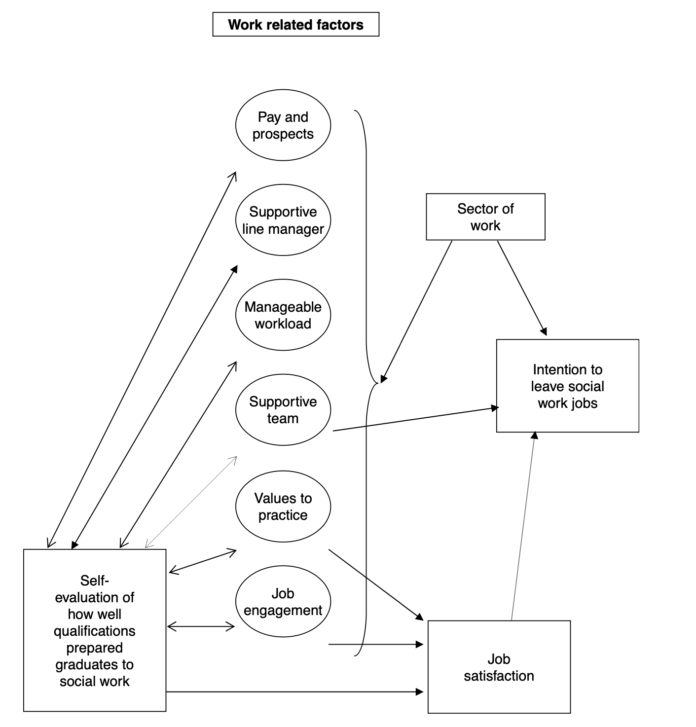Satisfaction with different organisational elements and aspects of work contributes markedly to overall levels of job satisfaction and intention to leave. For newly qualified social workers (NQSWs), especially immediately after graduation, self-perceived competence and their confidence in their educational preparation are also important. This article reports on a longitudinal study following 280 social work students into social work employment in England using data collected as students and six months after graduation. We focus on their experiences as NQSWs, thus only including those working in social work jobs, reporting the relative importance of their satisfaction with different work elements, such as supervision and job engagement. These are used to construct a model of NQSWs’ overall satisfaction and intentions of leaving their social work jobs. The model incorporates NQSWs’ perceptions of how well their degree courses prepared them for their current social work jobs in addition to personal, organisational and specific role characteristics. Using statistical techniques of factor analysis and regression modelling we highlight the complexities of how job satisfaction is constructed and we argue that the data reveal the importance of team support and self-efficacy in relation to whether social workers are thinking about leaving their current social work jobs.
Hussein, S., Moriarty, J. Stevens, M., Sharpe, E. & Manthorpe, J. (2014) Organisational factors, job satisfaction and intention to leave among newly qualified social workers in England, Social Work Education, An International Journal. 33 (3): 381-396.
Founder and Director
Shereen Husseinis a Health and Social Care Policy professor at the London School of Hygiene and Tropical Medicine (LSHTM), United Kingdom.
Shereen Founded the MENARAH Network in 2019, through an initial grant from the Global Challenge Research Fund, UKRI. She is a medical demographer with expertise in ageing, family dynamics, migration and long-term care systems. Shereen regularly collaborates with the United Nations, the World Health Organisation and the World Bank in policy and research focused on ageing in the Middle East and North Africa Region.
Shereen received her undergraduate degree in statistics and a postgraduate degree in computer science at Cairo University. She completed an MSc in medical demography at the London School of Hygiene and a PhD in quantitative demography and population studies at the London School of Economics and Political Science, United Kingdom.



